
Ilya Grigoryevich Ehrenburg was a Soviet writer, revolutionary, journalist and historian.
Rootless cosmopolitan was a pejorative Soviet epithet which referred mostly to Jewish intellectuals as an accusation of their lack of allegiance to the Soviet Union, especially during the antisemitic campaign of 1948–1953. This campaign had its roots in Joseph Stalin's 1946 attack on writers who were connected with "bourgeois Western influences", culminating in the "exposure" of the non-existent Doctors' Plot in 1953.

Alexander Mikhailovich Orlov, was a colonel in the Soviet secret police and NKVD Rezident in the Second Spanish Republic. In 1938, Orlov refused to return to the Soviet Union due to fears of execution, and instead fled with his family to the United States. He is mostly known for secretly transporting the entire Spanish gold reserves to the USSR in exchange for military aid for Spanish Republic and for his book, The Secret History of Stalin's Crimes.
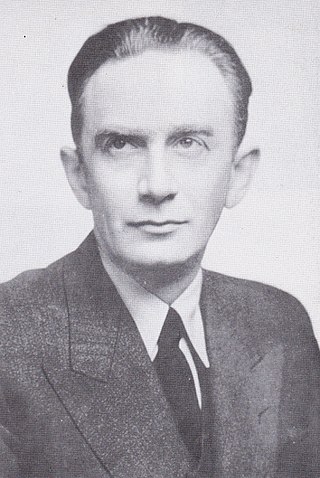
Walter Germanovich Krivitsky was a Soviet intelligence officer who revealed plans of signing the Molotov–Ribbentrop Pact after he defected to the West.
Chastushka is a traditional type of short Russian humorous folk song with high beat frequency, that consists of one four-lined couplet, full of humor, satire or irony. The term "chastushki" was first used by Gleb Uspensky in his book about Russian folk rhymes published 1889. Usually many chastushki are sung one after another. Chastushki make use of a simple rhyming scheme to convey humorous or ironic content. The singing and recitation of such rhymes were an important part of peasant popular culture both before and after the Bolshevik Revolution of 1917.

Mikhail Mikhaylovich Zhvanetsky was a Soviet writer, satirist and performer of Jewish origin, best known for his shows targeting different aspects of the Soviet and post-Soviet everyday life.
Dmitri Antonovich Volkogonov was a Soviet and Russian historian and colonel general who was head of the Soviet military's psychological warfare department. After research in secret Soviet archives, he published a biography of Joseph Stalin and Vladimir Lenin, among others such as Leon Trotsky. Despite being a committed Stalinist and Marxist–Leninist ideologue for most of his career, Volkogonov came to repudiate communism and the Soviet system within the last decade of his life before his death from cancer in 1995.

Polina Semyonovna Zhemchuzhina was a Soviet politician and the wife of the Soviet foreign minister Vyacheslav Molotov. Zhemchuzhina was the director of the Soviet national cosmetics trust from 1932 to 1936, Minister of Fisheries in 1939, and head of textiles production in the Ministry of Light Industry from 1939 to 1948. In 1948, Zhemchuzhina was arrested by the Soviet secret police, charged with treason, and sent into internal exile, where she remained until after the death of Joseph Stalin in 1953.

DavidBergelson was a Yiddish language writer born in the Russian Empire. He lived for a time in Berlin, Germany, before moving to the Soviet Union following the Nazi rise to power in Germany. He was a victim of the post-war antisemitic "rootless cosmopolitan" campaign and one of those executed on the Night of the Murdered Poets.
Robert Littell is an American novelist and former journalist who resides in France. He specializes in spy novels that often concern the CIA and the Soviet Union.
The accusation that Joseph Stalin was antisemitic is much discussed by historians. Although part of a movement that included Jews and rejected antisemitism, he privately displayed a contemptuous attitude toward Jews on various occasions that were witnessed by his contemporaries, and are documented by historical sources. In 1939, he reversed Communist policy and began a cooperation with Nazi Germany that included the removal of high profile Jews from the Kremlin. As dictator of the Soviet Union, he promoted repressive policies that conspicuously impacted Jews shortly after World War II, especially during the anti-cosmopolitan campaign. At the time of his death, Stalin was planning an even larger campaign against Jews. According to his successor Nikita Khrushchev, Stalin was fomenting the doctors' plot as a pretext for further anti-Jewish repressions.

Author and publisher Valery Nikolaevich Chalidze was a Soviet dissident and human rights activist, deprived of his USSR citizenship in 1972 while on a visit to the US.
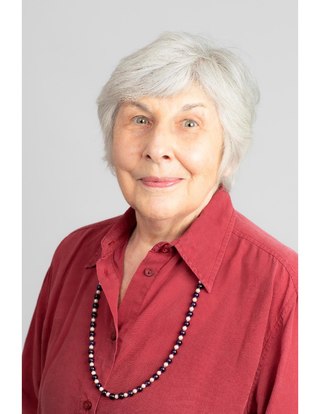
Sheila Mary Fitzpatrick is an Australian historian, whose main subjects are history of the Soviet Union and history of modern Russia, especially the Stalin era and the Great Purges, of which she proposes a "history from below", and is part of the "revisionist school" of Communist historiography. She has also critically reviewed the concept of totalitarianism and highlighted the differences between Nazi Germany and the Soviet Union in debates about comparison of Nazism and Stalinism.

Maxim D. Shrayer is a bilingual Russian-American author, translator, and literary scholar, and a professor of Russian, English, and Jewish Studies at Boston College.
German Exilliteratur is the name for works of German literature written in the German diaspora by refugee authors who fled from Nazi Germany, Nazi Austria, and the occupied territories between 1933 and 1945. These dissident writers, poets and artists, many of whom were of Jewish ancestry or held anti-Nazi beliefs, fled into exile in 1933 after the Nazi Party came to power in Germany and after Nazi Germany annexed Austria by the Anschluss in 1938, abolished the freedom of press, and started to prosecute authors and ban works.
Amy W. Knight is an American historian of the Soviet Union and Russia. She has been described by The New York Times as "the West's foremost scholar" of the KGB.
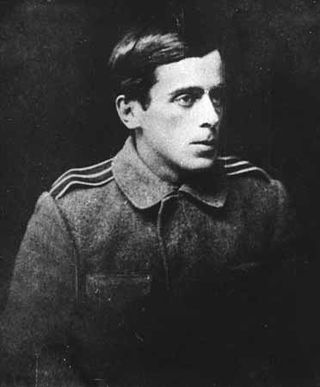
Sergei Yakovlevich Efron was a Russian poet, White Army officer, and the husband of fellow poet Marina Tsvetaeva. While in exile, he was recruited by the Soviet NKVD. After returning to the USSR from France, he was executed.

Eugene Yelchin is a Russian-American artist best known as an illustrator and writer of books for children.
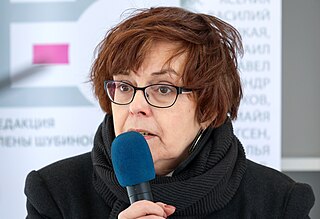
Elena Semenovna Chizhova is a Russian writer, whose work is characterized by its reexamination of Russian history and society. She is best known for her 2009 novel Vremia zhenshchin, which won that year's Russian Booker Prize. Vremia zhenshchin was translated into English in 2012 as The Time of Women.
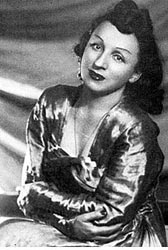
Anna Guzik was a Soviet variety artist, Russian and Yiddish theatre actress, and recording artist. Like Zinovy Shulman, Nechama Lifshitz, Sidi Tal, and Emil Gorovets, she had a career performing Jewish music and plays on the Soviet stage which was marked by various periods of censorship and official support depending on the political climate.












